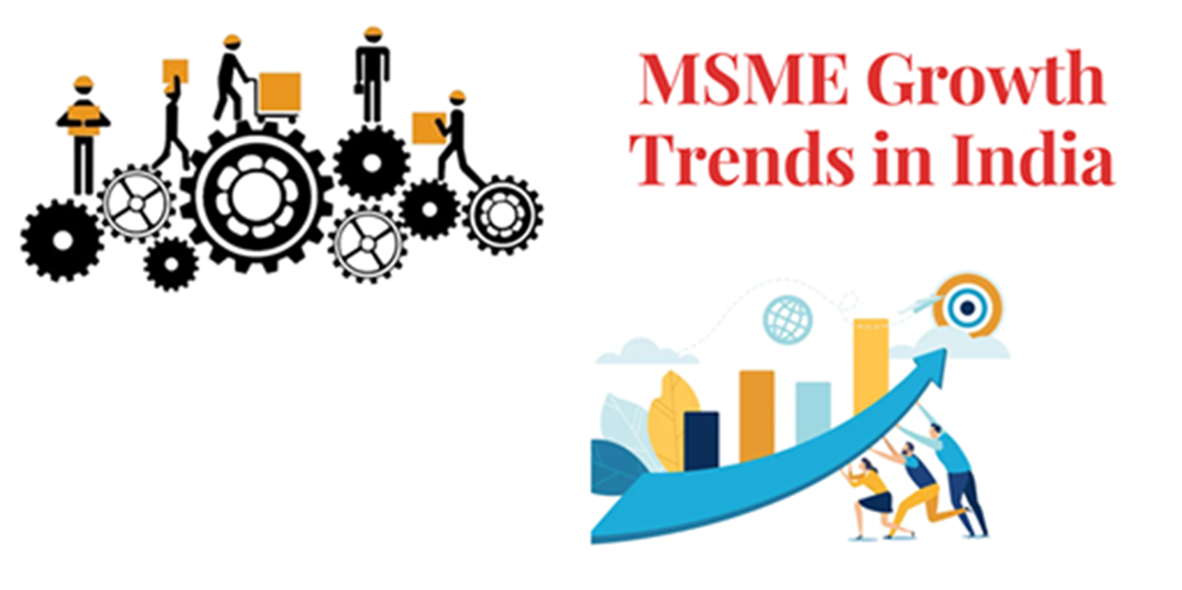FW
Not-for-profit organisation, Ethical Clothing Australia plans to host a pivotal panel during Australian Fashion Week 2024. Titled, ‘Is there sustainable fashion without ethics?,’ the panel will be held on May 16 at the University of Technology Sydney. This significant discussion will be organised in collaboration with The Centre of Excellence in Sustainable Fashion + Textiles, a partnership between UTS and TAFE NSW.
The panel will focus on the examination of the garment workers’ rights within the textile, clothing, and footwear industry. A few of the esteemed panelists will include Dr Timo Risannen, UTS/Centre of Excellence in Sustainable Fashion & Textiles; Aldona Brangwin, Citizen Wolf; Jenny Kruschel, National Secretary-Textile, Clothing and Footwear, CFMEU Manufacturing Division, and James Dunlop, Representative, Be Slavery Free. The panel will be moderated by Rachel Reilly, National Manager, Ethical Clothing Australia.
Articulating the panel's core purpose, Reilly emphasised, while discussions on sustainable fashion often focus on materials and processes, the rights and experiences of garment workers are frequently overlooked. She highlighted, true sustainability cannot be achieved if it comes at the cost of exploiting workers in any stage of production.
Rielly opined, to meet its sustainability goals, the garment industry needs to first focus on the workers’ social and economic rights. With over two decades of experience, Ethical Clothing Australia upholds these rights by collaborating with businesses to ensure fair working conditions within the local supply chain.
By hosting this panel during one of the most prominent events in the fashion industry, Ethical Clothing Australia aims to catalyse meaningful discussions and drive tangible actions towards safeguarding the rights of garment workers and fostering a truly sustainable fashion ecosystem.

The global apparel industry is experiencing a significant demand rebound especially in the West that is US and EU, driven by factors like fading recession fears, improved consumer sentiment, and inventory restocking after the holiday season. This increase in buying presents new opportunities for garment-manufacturing countries, but the picture is not uniform.
China sees demand spike, Bangladesh a drop
As per a QIMA report Q1 2024 saw a 20 per cent YoY increase in demand for textile and apparel. US-based buyer demand for inspections in China grew by 12 per cent YoY, while European demand saw even faster growth, particularly from Germany (+35 per cent), France (+30 per cent), and the Netherlands (+33 per cent). China's apparel exports to the US rose in value terms by 0.48 per cent and in volume terms by 14.94 per cent in January-February 2024 compared to 2023. While China remains the dominant supplier, Vietnam is also showing promise
Bangladesh on the other hand despite the global rise in demand, exports to the US and EU witnessed a decline in the first two months of 2024 compared to 2023. As per OTEXA & Eurostat data RMG exports to the US and EU declined in 2024 compared to 2023. However, there are signs of increased inquiries from new markets like Australia, Japan, India, and Korea.
The data clearly indicates, China is likely to be the biggest beneficiary of the US buying surge, with strong growth in inspections and audits. Bangladesh may struggle to compete due to recent cost escalations. In the EU, both China and Bangladesh are facing export decline, though China's decline is smaller. Vietnam's exports to the EU have also decreased.
However, increased inspections in Bangladesh indicate potential order growth, with diversification beyond traditional US and EU markets (e.g., Australia, Japan).
Challenges and opportunities
There are several challenges for export growth among supplier countries. Rising production costs is foremost. Countries like Bangladesh need to address this issue to remain competitive. They also need to diversifying beyond traditional markets US & EU market that can provide Bangladesh and other countries with new opportunities. Moreover, export incentive policies can significantly impact a country's competitiveness.
The growing demand for apparels presents an opportunity, but Bangladesh faces challenges. Cost competitiveness and government policies (cash incentive reduction) are crucial factors for further growth. Diversifying markets and addressing cost concerns will be key for Bangladesh to capitalize on this potential bonanza.
Better Cotton, the world's largest cotton sustainability initiative, is teaming up with Afreximbank to conduct sustainability assessments in West and Central Africa. This initiative aims to understand the needs of smallholder farmers in the region and implement tailored interventions for sustainable and regenerative cotton production.
With a combined engagement of 200,000 farmers and farm workers in Mali and Cote d’Ivoire, Better Cotton's collaboration with Afreximbank is set to make significant strides.
This partnership aligns with broader efforts led by the World Trade Organization (WTO) and FIFA to support the cotton-to-textile value chain in the region. The recent formation of the 'Partenariat pour le Coton' coalition emphasizes the need for investment to enhance local processing capacities and maximize economic returns.
Better Cotton's assessments, conducted with support from its Programme Partners, aim to link farming communities with the WTO and FIFA's mission. Alan McClay, CEO of Better Cotton, highlighted Africa's importance in cotton production and the organization's commitment to sustainable economic development.
Kanayo Awani, EVP of Afreximbank, emphasized their dedication to supporting smallholder farmers and the cotton value chain, aiming for higher sustainability, quality, and global market potential. This partnership signifies a crucial step towards a more sustainable future for cotton production in the region.
Grasim Industries Ltd. introduces EcoSodium, derived from Viscose Staple Fibre (VSF) production, marking a breakthrough in sustainability. This innovation curtails environmental impact by minimizing Sodium Sulphate (SS) discharge into wastewater.
Traditionally, SS, a crucial inorganic chemical, is obtained through mining or synthetic methods, but Grasim’s approach mirrors global standards, prioritizing recovery.
ManMohan Singh, Chief Marketing Officer, asserts, "EcoSodium sets new benchmarks, blending sustainability with excellence."
EcoSodium guarantees responsible sourcing and manufacturing, complying with Reach, ZDHC MRSL standards. Its integration into various industries underscores its versatility, promoting sustainable development. Surya Valluri, Chief Sustainability Officer, underscores its embodiment of Grasim's sustainable ethos.
Assessment by BluWin Ltd. affirms EcoSodium's robust production and supply chain practices, with detailed case studies accessible on Birla EcoSodium website.
Federico Pellegata has ascended to the position of General Secretary of Cematex, succeeding Cornelia Buchwalder. The European Committee of Textile Machinery Manufacturers extends gratitude to Buchwalder for her professional and competent service.
Pellegata's nomination by the Cematex Board of Directors on April 11, 2024, marks a transition from his prior role as CEO of Acimit Servizi after a longstanding tenure on the Cematex Executive Committee.
Cematex, representing Europe's textile machinery associations and the proprietor of ITMA, the globe's premier textile machinery exhibition since 1951, faces forthcoming challenges under Pellegata's leadership.
Notably, he will oversee four major events, commencing with ITMA Asia + CITME in Shanghai from October 14 - 18, 2024. Subsequent exhibitions include ITMA Asia + CITME Singapore (2025), and ITMA Asia + CITME in Shanghai (2026), culminating in ITMA in Hannover (2027).
Ernesto Maurer, President of Cematex, expresses confidence in Pellegata's ability to advance the industry's exhibition leadership, emphasizing a commitment to digital innovation. Pellegata's extensive experience is poised to fortify the sector's global standing.
Frasers Group plc (FG) has finalised an agreement to acquire specific intellectual property assets from esteemed online fashion retailer, Matches Fashion. This strategic move follows an extensive marketing endeavor facilitated by the Joint Administrators overseeing Matches Fashion.
Under the terms of the agreement, FG has extended a license to the Joint Administrators, allowing them to oversee the sale of Matches Fashion's inventory for a limited duration, ultimately serving the interests of the administration.
Frasers Group emphasises that while the acquisition encompasses vital intellectual property assets, the existing stock held by Matches Fashion does not fall under the purview of this transaction. It reiterates that the joint administrators will continue to manage all operational facets of Matches Fashion to safeguard the interests of the administration, assuring brands and suppliers of seamless continuity in business operations.
Retailers across the United States are being compelled to shutter their brick-and-mortar stores, with major brands like Walmart and Dollar Tree attributing these closures to unsustainable business models.
In 2024 alone, around 1,290 stores have either closed their doors or are slated for closure. Around 169 stores shut down in the last week of April. Among the hardest-hit sectors are supermarkets and fashion brands.
Express, a prominent clothing company announced the closure of 95 stores. Soon, 33 Foxtrot stores followed suit on April 23.
Meanwhile, Urban Outfitters revealed plans to close seven stores, including its decade-old Williamsburg location. Walmart, too announced the closure of one of its Neighborhood Market stores in Milwaukee, citing challenges in profitability, especially for smaller urban stores.
As the retail industry navigates these challenges, it's clear that adapting to changing consumer behaviors and economic realities is essential for survival in today's market.
Cotton Council International (CCI) hosted an event at the International Convention City Bashundhara in Dhaka to discuss the apparel sector's evolving commitment to sustainability, particularly through initiatives focused on traceability and circularity. The event highlighted both progress and challenges in this transformative journey
Acknowledging the momentum toward sustainability, speakers at the event emphasised the importance of aligning with legislative initiatives and industry targets. Amit Gautam, CEO and Founder, Textile Genesis, underscored the significant regulatory shifts driving the industry towards greater accountability and transparency. He outlined key drivers such as regulatory compliance, responsible sourcing goals, and the imperative to authenticate product claims, all aimed at mitigating supply chain risks.
Melissa Bastos, Director- Corporate Strategy and Insights, Cotton Incorporated, shared insights from the 2023 Industry Circularity Survey, revealing a growing consumer awareness of circularity concepts. However, she also noted challenges in expanding circularity initiatives, including cost implications, implementation complexities, and the pricing dynamics of recycled materials.
The discussion reflected a collective commitment to advance sustainability practices, with voices from various stakeholders, including Ali Arsalan representing CCI in Bangladesh, Stephanie Thiers-Ratcliffe from Cotton Council International, and Arif Razzaque from Kiabi International Supply Services Ltd, Bangladesh, etc.

Micro, Small, and Medium Enterprises (MSMEs) are the lifeblood of the Indian economy. A new study by Borzo, a global intra-city delivery service, sheds light on the operational dynamics of these dynamic businesses and the evolving landscape they navigate. The study highlights:
• Since last year, 56 per cent MSMEs have experienced a business growth of 20-30 per cent, debugging slowdown debate.
• Average shipment value of MSMEs is Rs 1.4 million per month
• Customer acquisition, recruitment, packaging and inventory management are the biggest pain points faced by MSMEs
Entrepreneurial spirit at the helm
The survey reveals a strong entrepreneurial spirit within MSMEs, with nearly three-fourths (74 per cent) being owner-driven. This reflects the dedication and risk-taking appetite of individuals who are the driving force behind these businesses. However, MSMEs face a multitude of challenges. Customer acquisition (16 per cent) and recruitment (13 per cent) top the list, highlighting the need for innovative marketing strategies and talent acquisition practices. Additionally, concerns around financing (5 per cent), packaging (12 per cent), and inventory management (11 per cent) pose significant operational hurdles. Borzo's initiative, Borzo Connect, a large-scale MSME conference, aims to address these concerns by connecting entrepreneurs and offering solutions.
A thriving ecosystem
The survey underscores the dominance of intra-city deliveries, with nearly half of MSMEs reporting over 70 per cent of their orders staying within the same city. Major metros like Mumbai, Delhi, and Bangalore are key hubs, with Tier II and II cities like Vadodara and Nagpur emerging as potential growth markets. Interestingly, the product categories are diverse, with food & beverages leading the way (23.1 per cent), followed by apparel & fashion (13.6 per cent). A significant portion (31.5 per cent) operates through both retail and online channels, showcasing a multi-channel approach that caters to a wider customer base.
While the debate on quick commerce with 10-minute deliveries rages on, the study reveals a preference for speed with a quality focus. A majority (59 per cent) of MSMEs prioritize delivery within 60 minutes, underlining the importance of meeting customer expectations and ensuring timely deliveries. Additionally, 72 per cent value both speed and quality for a seamless customer experience. This highlights the understanding that speed alone doesn't guarantee customer satisfaction.
Financial performance and growth indicators
The average monthly shipment value for MSMEs is approximately Rs 1.4 million. Notably, over 95 per cent of MSMEs reported an increase in shipment value compared to last year, with a majority (56 per cent) experiencing a growth of 20-30 per cent. This indicates a positive trend and potential for further expansion. Interestingly, only 21.4 per cent of MSMEs reported a business slowdown, suggesting the sector's resilience despite broader economic concerns.
Sustainability and embracing technology
The survey highlights a positive shift towards environmental responsibility. A staggering 66.6 per cent of MSMEs have adopted sustainable packaging materials like bagasse boxes and cloth bags. This growing focus on eco-friendly practices reflects a responsible business approach. Moreover, a high adoption rate (85 per cent) of supply chain automation suggests that MSMEs are embracing technology to enhance efficiency and scalability in their operations.
Collaboration and support for continued growth
The Borzo reveals a dynamic MSME sector in India. While challenges persist, these entrepreneurial businesses are demonstrating a willingness to adapt and innovate. By addressing pain points like customer acquisition and financing, fostering collaboration through initiatives like Borzo Connect, and promoting sustainable practices, stakeholders can empower MSMEs to thrive. Also, robust logistics assistance, catering to the diverse delivery needs of MSMEs across various cities, will further boost their expansion.
Thus, India's MSMEs are a powerful engine of growth and innovation. By recognizing their challenges and providing the necessary support, stakeholders can ensure that these businesses continue to be the backbone of the Indian economy. Entrepreneurial spirit, willingness to adapt, growing focus on technology and sustainability position MSMEs towards a bright future, propelling India's economic journey forward.
Sandra Stangl, President and Chief Executive Officer, Banana Republic is stepping down from her position. Having led the US apparel firm for just over three years, Stangl tasked with the responsibility of reviving the brand’s declining sales.
However, she failed to achieve this as in Q4 FY23, the net sales of Banana Republic declined by 2 per cent to $567 million compared to the previous year, with comparable sales declining by 4 per cent.
During Stangl's tenure, the brand ventured into new territory by launching a line of furniture and homeware, aiming to position itself as a lifestyle brand.
Announcing the leadership transition in an internal memo, Richard Dickson, President and CEO, Gap Inc, the parent company of Banana Republic, Stangl's efforts in elevating Banana Republic's aesthetic and expanding into new product categories. Dickson emphasised on the need to focus on revitalising the brand's fundamentals to drive both relevance and revenue.
Dickson expressed commitment to working closely with Banana Republic's leadership team to achieve the company's fiscal goals for 2024. Highlighting the upcoming discussion at the Banana Republic Town Hall, he emphasised on the importance of maintaining a vibrant company culture.












